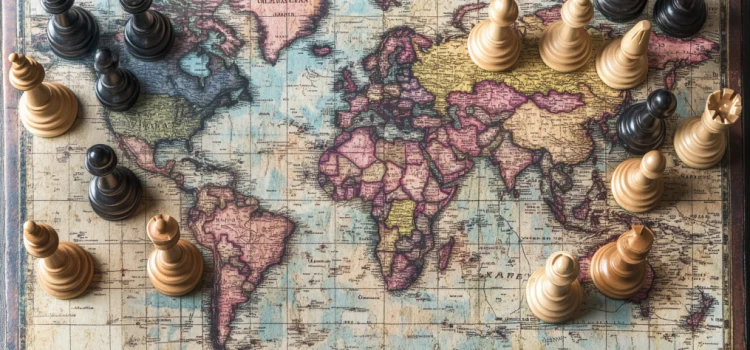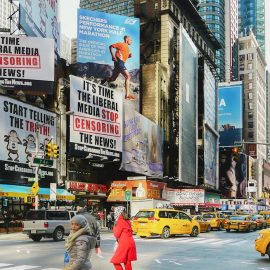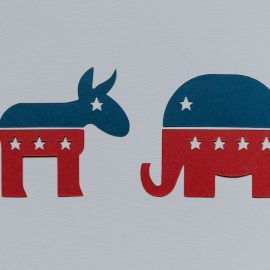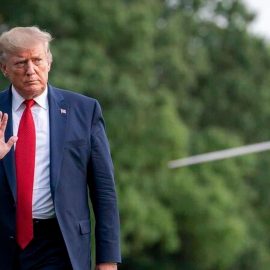

This article is an excerpt from the Shortform book guide to "The Dictator's Handbook" by Bruce Bueno de Mesquita and Alastair Smith. Shortform has the world's best summaries and analyses of books you should be reading.
Like this article? Sign up for a free trial here.
Why do nations form alliances or go to war? What drives leaders to make these crucial decisions in international politics?
In their book The Dictator’s Handbook, Bruce Bueno de Mesquita and Alastair Smith explore various approaches to international politics. They examine how leaders secure allies, distribute foreign aid, and wage wars. The authors compare the strategies of dictators and democratic leaders in these areas.
Continue reading to explore how leaders navigate the complex landscape of international relations.
Approaches to International Politics
While the size and composition of power blocs determine a leader’s domestic politics, the authors argue that power blocs influence international politics as well. Leaders are both constrained by the needs of their power blocs and encouraged to pursue their interests abroad. The authors discuss how leaders secure alliances and wage wars to best serve their power blocs, comparing the approaches to international politics of both dictators and democrats.
(Shortform note: The authors are most closely aligned with the realist school of international relations. According to realists, each nation is concerned first and foremost with securing its own national interests and security. Since leaders and their power blocs are concerned first and foremost with remaining in power, it follows that this is how they would approach international affairs.)
Securing Allies
The authors argue that leaders choose allies that help secure their economic and political interests. This often means allying with whoever pays best or asks for the least. Dictators are generally easier to “buy” an alliance with than democrats, as they don’t have to worry about whether an alliance is broadly popular in their country. This is why democrats will cooperate with dictators and in some cases even oppose democratization abroad: Dictators are cheaper and don’t need broad public support to pursue a desired goal.
For example, the democratic US and Belgian regimes covertly overthrew the Democratic Republic of Congo’s democratically elected leader Patrice Lumumba because they were concerned he would limit their access to the country’s resource wealth and ally with the Soviet Union. They replaced him with Mobutu Sese Seko, who—at least for a time—was willing to cooperate with US and Belgian interests.
(Shortform note: In the past few decades, some scholars of international relations have started acknowledging factors beyond political and economic interests in discussing alliances. Specifically, they’ve noted that shared religious and ethnic backgrounds also contribute to alliances between nations. Scholars still debate the extent to which these factors impact international relations. Some suggest that religious and ethnic similarities usually correlate with shared economic interests, making the distinction between these factors unimportant. Others believe that religious and ethnic similarities can sometimes take priority over economic interests in international relations.)
Foreign Aid
According to the authors, the main purpose of foreign aid is to buy loyalty from other nations. While aid programs are often pitched to the public as ways of helping struggling peoples, they’re more often bribes to other leaders—especially in dictatorships, where leaders are free to misuse aid for their own purposes. This arrangement benefits both giver and recipient: The giver appears charitable to their people and the world public, while the recipient receives wealth they can appropriate or redistribute to their power bloc.
(Shortform note: According to Naomi Klein (The Shock Doctrine), foreign aid isn’t the only kind of international payment used to buy political change. She explains that loans and bailouts provided by the World Bank and International Monetary Fund often serve as “bribes” for nations to change their economic systems or governments. Klein argues that particularly during the decades after World War II, these institutions were controlled by the United States and therefore served US interests—requiring nations to adopt free-market reforms that would benefit American companies and trade.)
Waging War
While dictators and democrats choose allies in the same ways, the authors argue that they approach war differently. They compare when and how the two types of leaders wage war:
How Dictators Wage War
The authors argue dictators use wars as opportunities to quickly seize additional wealth or power. They’re willing and even likely to start a war—even against a difficult opponent—if they see such an opportunity. This is because the additional wealth will help them maintain the loyalty of their power bloc, while the popularity of a war or the safety of their soldiers is far less relevant to their continued hold on power.
However, dictators are unlikely to commit heavily to war if they encounter serious opposition. There are two main reasons for this: First, they need a constant domestic military presence to repress dissent, and fighting a difficult war would require them to divert some of these forces. Second, small power blocs are much more sensitive to any money diverted from rewards to war—a 10% reduction in rewards means a far larger loss to each member of a 50-person power bloc than it does to each member of a 500,000-person power bloc. Therefore, dictators can’t overcommit to wars militarily or financially without jeopardizing the loyalty of their power blocs.
(Shortform note: One example of an exception to the authors’ theory is when dictatorships are fighting for their survival or control of their country instead of for power and wealth. In these cases, small bloc regimes and the people living within them sometimes fully dedicate themselves to the conflict despite heavy opposition. An example of this phenomena is the Vietnam War, where the North Vietnamese continued fighting for control of the nation despite suffering hundreds of thousands of casualties.)
How Democrats Wage War
On the other hand, democrats use wars as last resort methods of achieving foreign policy goals, explain the authors. For democrats, going to war is a careful calculation: Sending soldiers to their deaths unnecessarily or losing a war will cause them to lose support, but so will failing to achieve their foreign policy aims. To maximize their chance of remaining in power, democrats tend to declare war only when other options have failed and only when they believe they can win.
When democrats do wage war, they’re more likely to commit heavily when they face serious opposition. Their large power blocs mean that funding a war effort requires less sacrifice from each supporter. In addition, spending more on the war effort helps to protect the lives of soldiers and can turn a losing war into a victory—both of which are popular outcomes and will boost a democratic leader’s support.
For example, when the US war in Vietnam encountered heavy resistance, the US government devoted additional funds and troops and continued fighting for over a decade.
(Shortform note: Some scholars disagree with the authors’ views on how war impacts the support of democratic leaders. They cite studies suggesting that joining or losing a war often doesn’t correlate with a democratic leader losing power. However, there are some notable exceptions: If a leader starts and then loses a war or is otherwise closely connected to it, they’re more likely to lose support and be replaced. In addition, a leader who is already politically vulnerable will likely suffer a larger loss of support when they lose a war. In these cases, further commitment to victory can offer leaders a way to hold onto power.)

———End of Preview———
Like what you just read? Read the rest of the world's best book summary and analysis of Bruce Bueno de Mesquita and Alastair Smith's "The Dictator's Handbook" at Shortform.
Here's what you'll find in our full The Dictator's Handbook summary:
- The two factors that truly distinguish one political system from another
- How leaders seize and stay in power in democracies and dictatorships
- The specific reason why democracy is better than dictatorship






